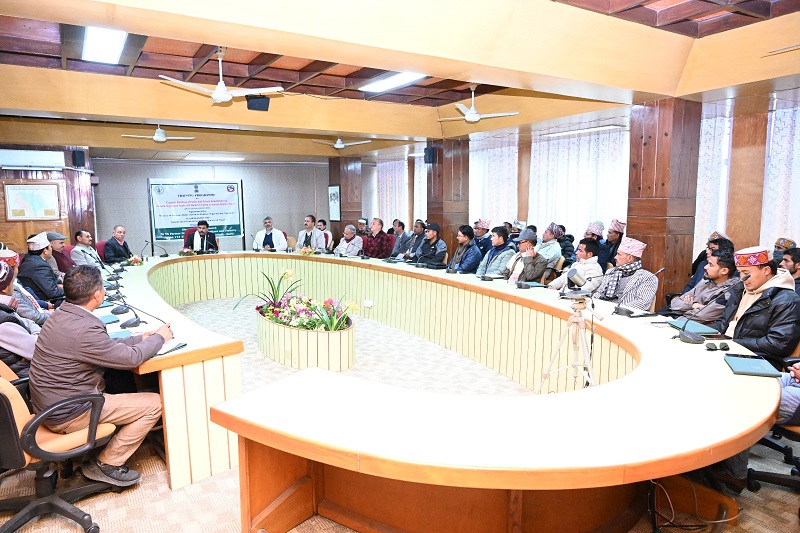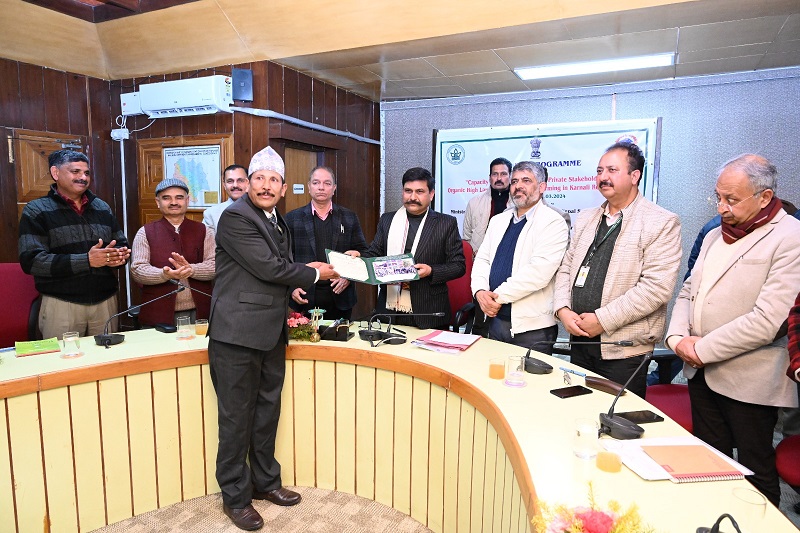Dr. YS Parmar University of Horticulture and Forestry, Nauni, organized a 10-day training program for 30 farmers and officials from the agriculture department of Nepal. This collaborative effort between the External Affairs Ministries of India and Nepal focused on skill enhancement of delegation in apple, walnut, and kiwi cultivation.

Representing the Karnali and Sudurpaschim regions of Nepal, the participating farmers and officials were supported by the Ministry of External Affairs, Northern Division, Nepal Section, New Delhi, in partnership with the Federal and Provincial Agriculture Ministry of Nepal.
During the valedictory session, Vice-Chancellor Prof. Rajeshwar Singh Chandel highlighted the geographical, social, and cultural similarities between the two countries, emphasizing the shared responsibility of preserving hill culture. Prof. Chandel stressed the importance of reducing cultivation costs and increasing profits for farmers, urging participants to explore innovative farming methodologies. Given the prevalence of organic farming in the Karnali region of Nepal, he recommended the adoption of cost-effective and environmentally friendly natural farming practices.

Prof. Chandel also emphasized the significance of cooperatives, encouraging farmers to form small groups for collective product marketing. Additionally, he suggested the cultivation of indigenous crops, millets with longer shelf life, and the conservation of local honeybees. The Vice-Chancellor assured participants of ongoing support from the university through online mediums.
Dr. Sanjeev Chauhan, Director of Research, informed that the university, chosen by the Ministry of External Affairs, aims to contribute to the skill development of Nepalese agriculture officials and farmers, particularly in organic cultivation. This inaugural batch of trainees from Nepal was the first of this collaboration that intends to train around 300 participants in the future.
Dr. Rajesh Kaushal, Joint Director of Research, outlined the hands-on experience provided to participants in fruit and vegetable cultivation, with a focus on apples, walnuts, and kiwis. The training included insights into organic and natural farming methodologies, coupled with visits to the university’s regional stations and the Himachal Pradesh Horticulture Department.
Progressive farmer Laxman Khatri expressed gratitude to the Ministries of both countries and the University, highlighting the role of training in clarifying fundamental agricultural concepts. He emphasized that the group’s significant learning was in natural farming which promoted soil and environmental conservation. The training concluded with the distribution of certificates to the participants.
The opinions, beliefs and viewpoints expressed by authors, news service providers on this page do not necessarily reflect the opinions, beliefs and viewpoints of Hill Post. Any views or opinions are not intended to malign any religion, ethnic group, club, organization, company, or individual.
Hill Post makes no representations as to the accuracy or completeness of any information on this site page.


